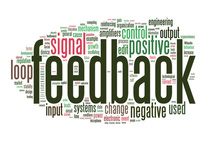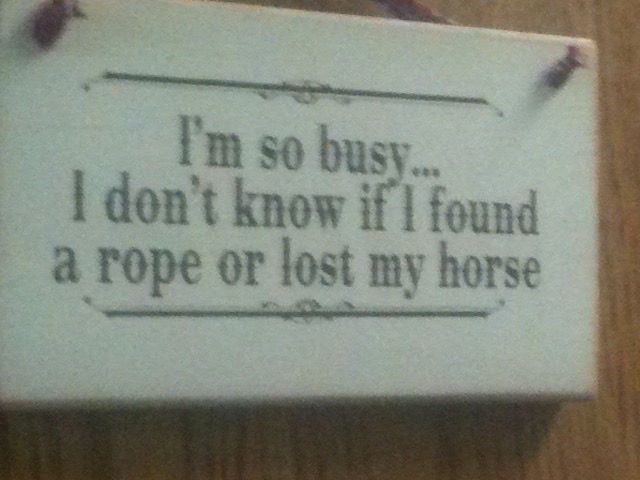
From the Center for Creative Leadership
Feedback can be uncomfortable to give, but with the right technique it can go more smoothly. Avoid these 10 common blunders when giving feedback to others, taken from the Center for Creative Leadership’s guidebook Feedback That Works.
Mistake #1: The feedback judges individuals, not actions Putting feedback in judgmental terms puts people on the defensive. And you’ve sent the message that you know what is right or wrong.
Mistake #2: The feedback is too vague. Steer clear of generalized, cliche’ catch phrases. If you want to really encourage someone to repeat productive behavior, you have to let them know what they did so they can keep doing it.
Mistake #3: The feedback speaks for others. Stick with the information that you know. Dragging a third party’s name into the mix only confuses the recipient, who then wonders why others are talking about them behind their back.
Mistake #4: Negative feedback gets sandwiched between positive messages. It may seem like a good idea to unburden the blow of negative comments with positive ones, but the recipient is smart enough to read between the lines, too.
Mistake #5: The feedback is exaggerated with generalities. Avoid those two little words, “always” and “never.” It puts people on the defensive because there is usually that one time…
Mistake #6: The feedback psychoanalyzes the motives behind behavior. It could be a divorce, resentment over a co-worker’s advancement, or burnout, but whatever you think you know about someone’s intents and motives is probably dead wrong.
Mistake #7: The feedback goes on too long. Know when to stop. People need time to process the information they have received.
Mistake #8: The feedback contains an implied threat. Telling someone their job is in jeopardy doesn’t reinforce good behavior or illustrate bad behavior. It only creates animosity.
Mistake #9: The feedback uses inappropriate humor. You might use sarcasm as a substitute for feedback, especially if you are uncomfortable giving it in the first place. Keep the snide comments to yourself.
Mistake #10: The feedback is a question, not a statement. Phrasing feedback as a question is too indirect to be effective. And it may even be interpreted as sarcastic. Really?
Learning from your mistakes is important. Have you encountered any of these common mistakes during your career?
http://insights.ccl.org/multimedia/video/10-common-mistakes-in-giving-feedback/?utm_source=SilverpopMailing&utm_medium=email&utm_campaign=Leading%20Effectively%20-%20September%2015%202015%20(1)
Feedback can be uncomfortable to give, but with the right technique it can go more smoothly. Avoid these 10 common blunders when giving feedback to others, taken from the Center for Creative Leadership’s guidebook Feedback That Works.
Mistake #1: The feedback judges individuals, not actions Putting feedback in judgmental terms puts people on the defensive. And you’ve sent the message that you know what is right or wrong.
Mistake #2: The feedback is too vague. Steer clear of generalized, cliche’ catch phrases. If you want to really encourage someone to repeat productive behavior, you have to let them know what they did so they can keep doing it.
Mistake #3: The feedback speaks for others. Stick with the information that you know. Dragging a third party’s name into the mix only confuses the recipient, who then wonders why others are talking about them behind their back.
Mistake #4: Negative feedback gets sandwiched between positive messages. It may seem like a good idea to unburden the blow of negative comments with positive ones, but the recipient is smart enough to read between the lines, too.
Mistake #5: The feedback is exaggerated with generalities. Avoid those two little words, “always” and “never.” It puts people on the defensive because there is usually that one time…
Mistake #6: The feedback psychoanalyzes the motives behind behavior. It could be a divorce, resentment over a co-worker’s advancement, or burnout, but whatever you think you know about someone’s intents and motives is probably dead wrong.
Mistake #7: The feedback goes on too long. Know when to stop. People need time to process the information they have received.
Mistake #8: The feedback contains an implied threat. Telling someone their job is in jeopardy doesn’t reinforce good behavior or illustrate bad behavior. It only creates animosity.
Mistake #9: The feedback uses inappropriate humor. You might use sarcasm as a substitute for feedback, especially if you are uncomfortable giving it in the first place. Keep the snide comments to yourself.
Mistake #10: The feedback is a question, not a statement. Phrasing feedback as a question is too indirect to be effective. And it may even be interpreted as sarcastic. Really?
Learning from your mistakes is important. Have you encountered any of these common mistakes during your career?
http://insights.ccl.org/multimedia/video/10-common-mistakes-in-giving-feedback/?utm_source=SilverpopMailing&utm_medium=email&utm_campaign=Leading%20Effectively%20-%20September%2015%202015%20(1)
